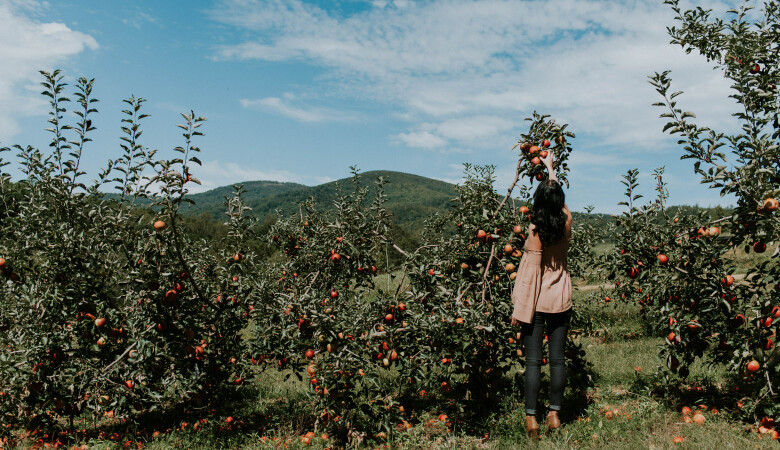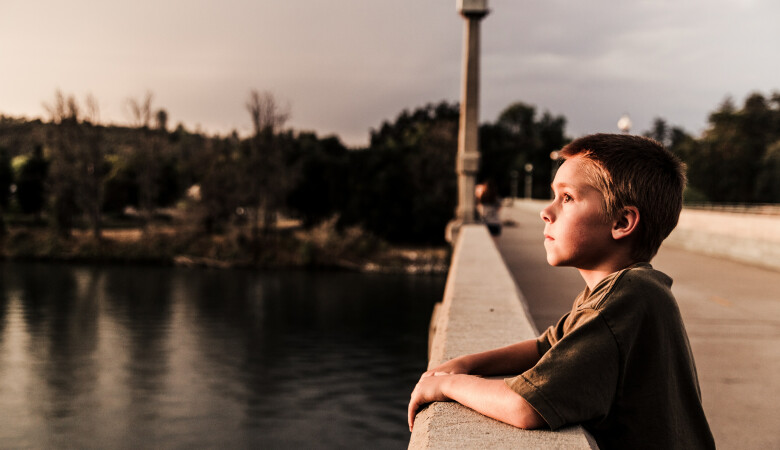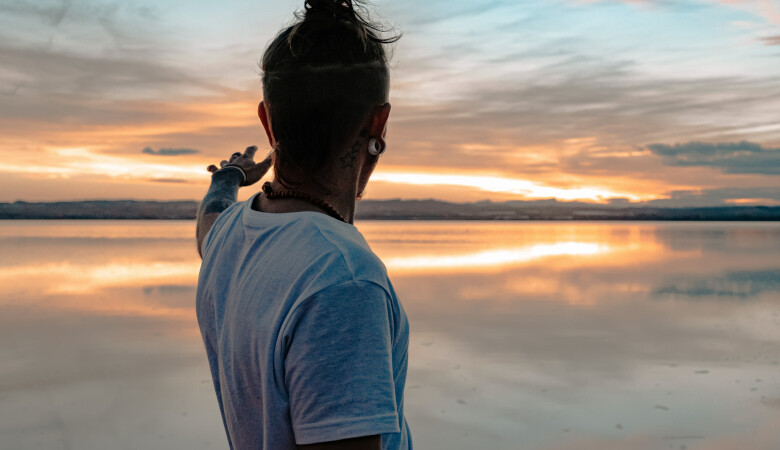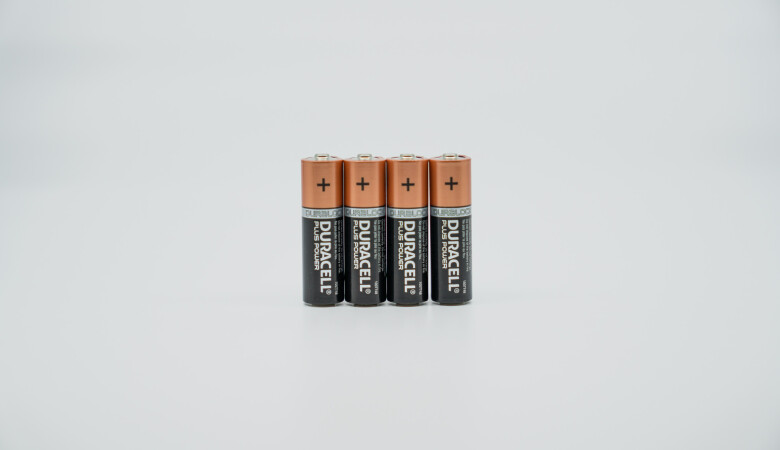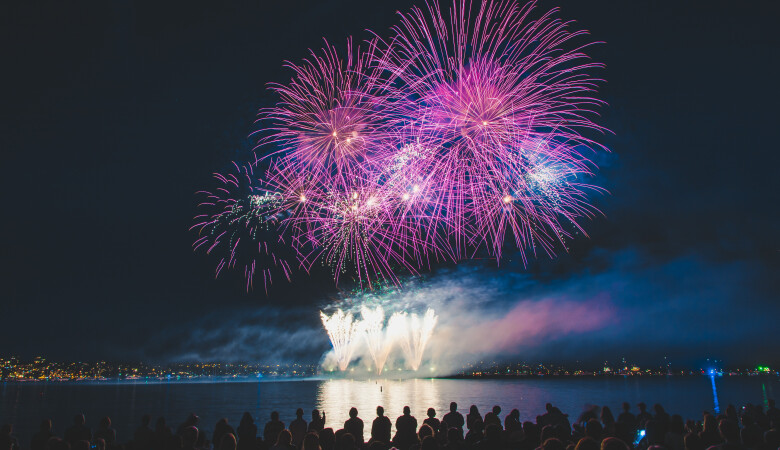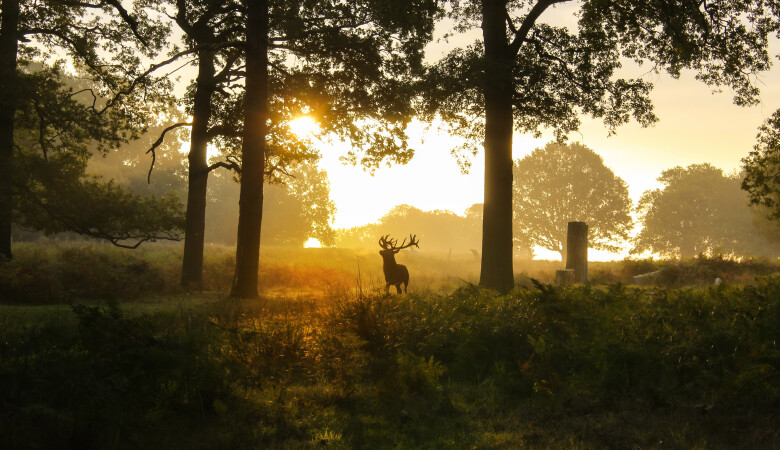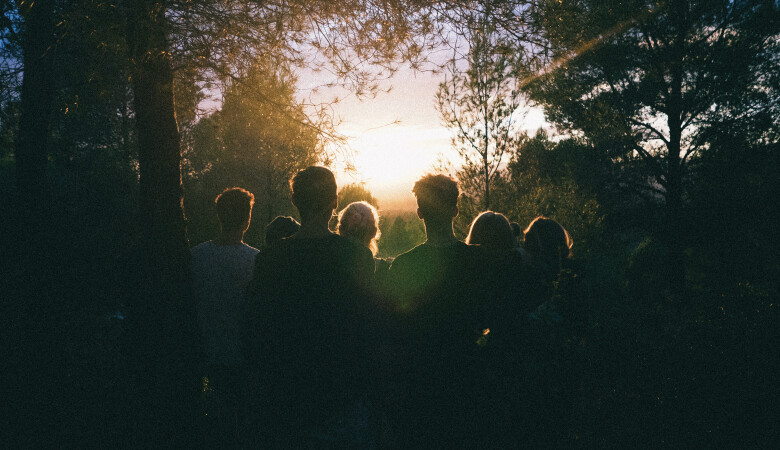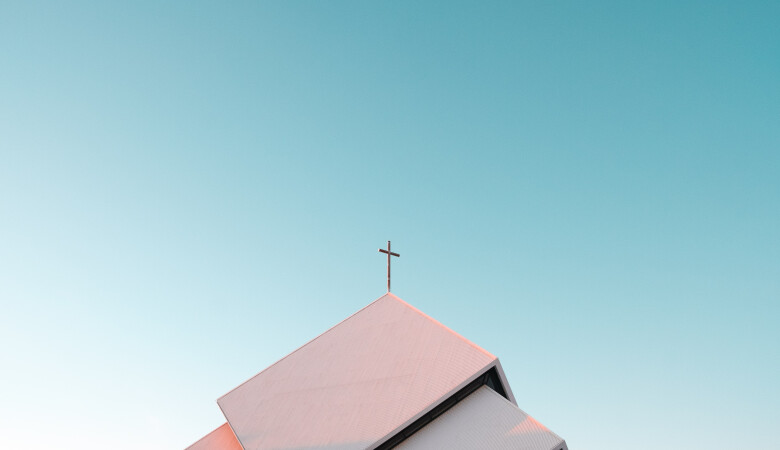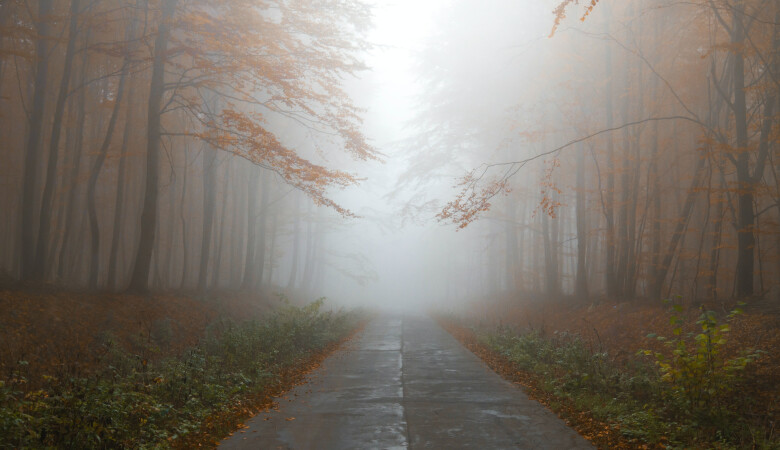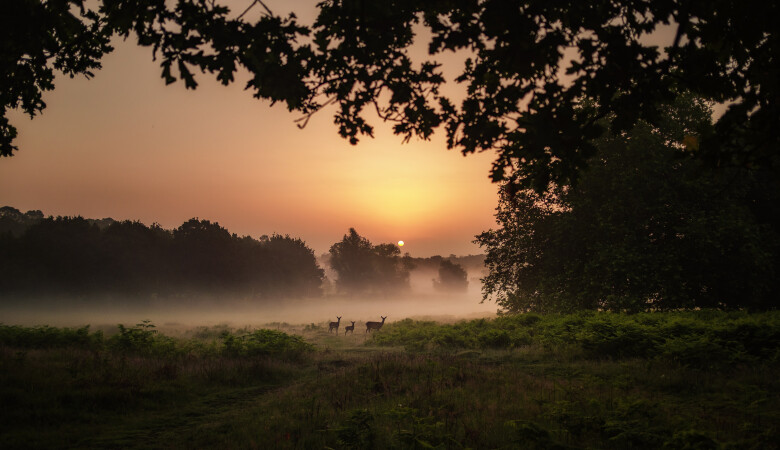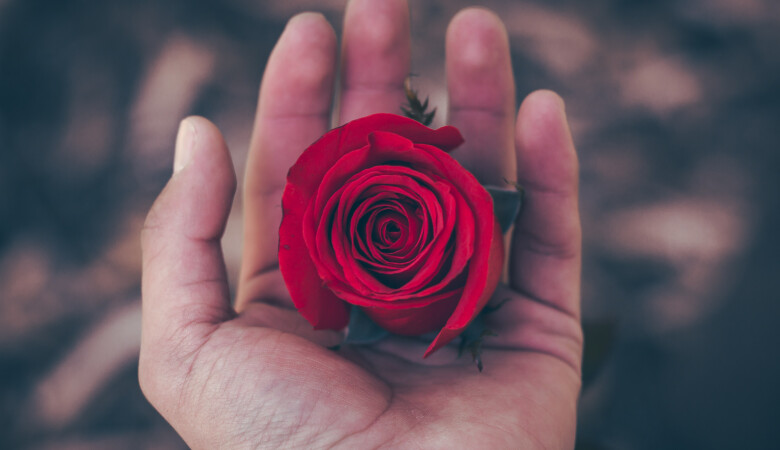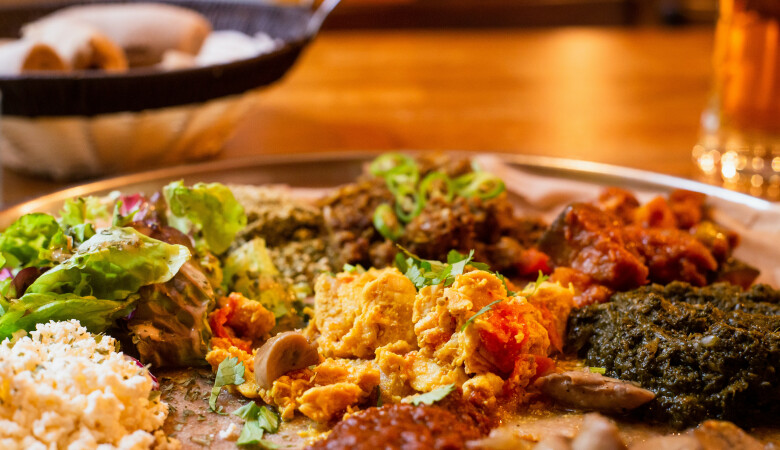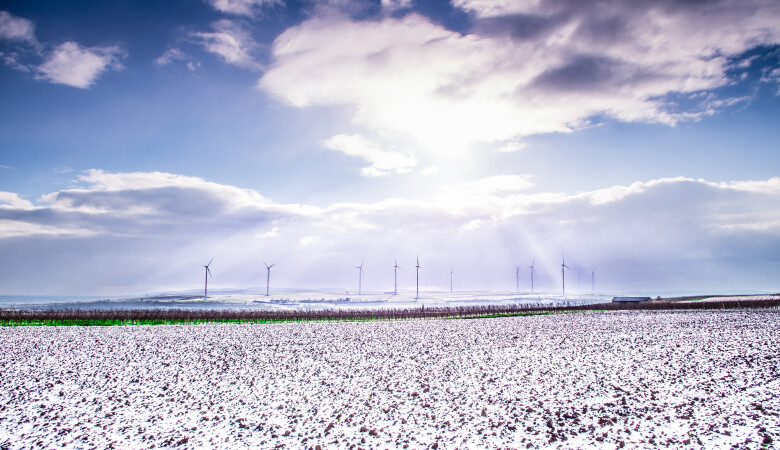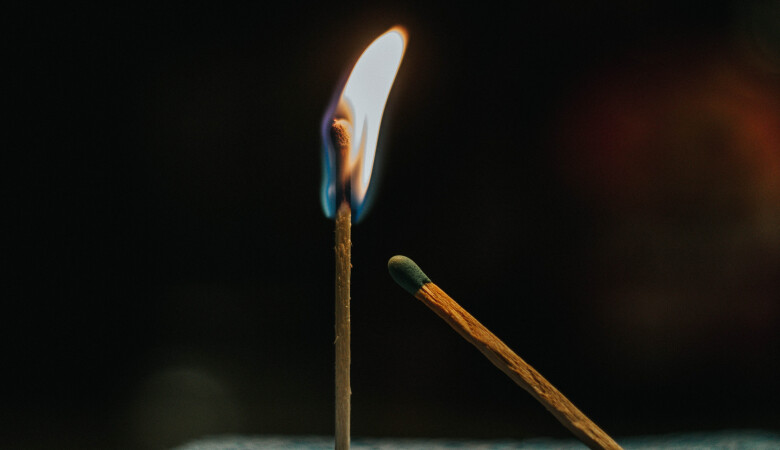There is No Racism with Christ (Ephesians Sermon 46 of 54)
August 14, 2016 | Andy Davis
Ephesians 6:9
Racism, Brotherly Love, Holiness, Creation
Introduction
Paul as he was evaluating his preaching ministry in Corinth, said, these remarkable words, 1 Corinthians 2:3. He said, "I was with you in weakness and fear and much trembling." So I feel that today a few weeks ago, I felt led by the Lord I felt pressed on my heart that Ephesians 6:9 would be a jumping off place to talk about an issue that faces our nation and our church, our ministry and this community, and that's the topic of racism. Since that time, I've done a lot of reading. I've done a lot of talking to friends, both black and white. I've talked to leaders in the community, other pastors. And the more I've had those conversations, the more this sense of fear and trembling has increased, not decreased. This is a hot issue for people. It's hard for people, it's hard to hear, it's hard to talk about, it's polarizing, it's divisive, and painful. That's why I somewhat identify with Paul's self-assessment weakness, fear, trembling.
But, you know, I also stand before you today with a tremendous confidence in the power of the Word of God to make changes in human hearts, that the Word of God has a supernatural power to change the world. It's been going on for 20 centuries the Gospel of Christ and so Paul continues in 1 Corinthians the next couple of verses saying, "My message and my preaching were not with wise and persuasive words, but with the demonstration of the Spirit's power, so that your faith might not rest on men's wisdom but on God's power." So I just have a sense of confidence that the Word of God is powerful to demolish satanic strongholds, and I just consider racism to be a satanic stronghold, and I think 2 Corinthians 10 says that we wield weapons that have supernatural power to blow up satanic strongholds. Blow them up. I believe that racism is a subset of the overall darkness satanic darkness that's come on the human race. It's a subset of it, that darkness is the darkness of sin, of rebellion against a holy God.
But God has sovereignly shown his light in the darkness. Isaiah 9:2, "The people walking in darkness have seen a great light, on those living in the land of the shadow of death a light has dawned." And that light is Christ. Jesus said, "I am the light of the world. I am the light of the world, whoever follows me will never walk in darkness, but will have the light of life." And God's word is light. Psalm 119:105, "A lamp to our feet and a light to our path." And the Church, God's Church is light, we are the light of the world, Jesus said. “He lights a lamp and puts it up on a stand and it gives light to everyone in the house.” And so it says in Isaiah 60, speaking of the heavenly Zion, "Arise and shine for your light has come, and the glory of the Lord rises upon you. Behold, darkness covers the earth and thick darkness is over the peoples, but the Lord rises upon you and his glory appears over you, nations will come to your light and kings to the brightness of your dawn." So the obstacles are huge, problems are complex, seem to be insoluble but I think where the darkness is the greatest, God's light can shine most gloriously. Where the enemy is seen to be strongest, God's power is displayed most radiantly gloriously and that's what I want to see happen today and through our church.
I. Recent Events Search Our Souls
Summer of 2016
So we begin by just looking at recent events. Recent events, just search our souls. This summer has been a hot summer. Now I know it's hot, it's hot, every day. I had some hope last week when it got to be 75. I'm just weak and it's not because I'm from Massachusetts, I don't like the cold either. So it's been steaming hot this summer. But the heat I'm talking about here, is the heat of current events. It's the heat of the issues connected with this topic of racism. On July 5th, Alton Sterling a 37-year-old African-American man was shot several times at point-blank range while being pinned down by two white police officers in Baton Rouge, Louisiana. And the incident and downloading of the videos led to ever escalating protests, resulting in a July 9th, demonstration, in which police officers were injured. And then the next day, July 6, Philando Castile was fatally shot, in St. Anthony Minnesota. Police officer Jeronimo Yanez pulled him over in St. Paul, Castile's girlfriend Diamond Reynolds was with him in the car, and after being asked for his license and registration Castile notified the officer, he had a license to carry weapon and one in the car and office told him not to move, and as he was putting his hands up, the officer, shot him in the arm four times and he bled to death. Diamond Reynolds video live streamed it and it obviously created immense reaction culminating in the shooting of three officers in Baton Rouge July 17th. All of these things coming together. And these events at the beginning of the summer just two more in a series of high profile events, all fitting that description of interactions between people of color and law enforcement.
The names have been burned into our minds, Trayvon Martin, Eric Garner, John Crawford III, Michael Brown, places like Ferguson, Missouri, North Charleston, South Carolina have become the focus of intense national scrutiny. A year ago in April 2015, in Baltimore, in the city of Baltimore, there were significant race riots, racial riots involving the injuries stemming from incidents involving injuries of Freddie Gray at the hands again, of law enforcement officials pushed the outrage of African-American community to a boiling point, and demonstrations got violent. Somewhere in the midst of all of those events that we've been discussing, that have been going on in recent years, a controversial group called Black Lives Matter was organized, and has become an increasingly vocal, and visible part of the political election and other parts of the landscape. Borrowing a phrase from Thomas Paine's opening words in his American crisis written around the time of the American Revolution. "These are the times that try men's souls." Or search our souls, should search our souls.
My Own Anguish and Journey
So, I have searched my soul and I've been thinking about myself. So who am I? Where do I come from? What's my background? Well, I was born in Boston, I was raised in Eastern Massachusetts, I was Irish-Catholic, went to college as an unbelieving, nominal Catholic. Never dreamed when I matriculated as a freshman at MIT, that I would end up the senior pastor of a Southern Baptist Church. I don't think any of those words would have meant anything to me at that point. What in the world is that? On this issue, as I find myself now the senior pastor of a predominantly white Bible Belt Southern Baptist Church, pastor in the Southern Baptist Convention which I learned after I became a Southern Baptist, that it was started in 1845, when slave-holding missionaries wanted to take their slaves with them on the mission field and Northern Baptists refused and so, they broke off and started the denomination of which this church is a member. I was surprised to find that out, but it's just history. 1845. The same year this church was established. The more I've learned details about the struggle for the Civil Rights Movement and the terrible injustices of the Jim Crow era, institutional racism, that segregated South. So I didn't see with my own eyes, I was more in 1962, so the Civil Rights Movement was going but I was really little, I didn't know much about it, but since the Civil War ended, and 13th or 14th amendments, were passed ending slavery. But then the situation just was still horrible, for blacks in America.
And then I look at my own heart and I just have always had, honestly revulsion and hatred for those kinds of things. It's always been part of my life but honestly I didn't have any black friends growing up. None. There were just none in the community at all. I know that Boston was a focal point of racial tensions and demonstrations and even riots, violent riots during the busing era. But again, I didn't know much about that. I think in my heart, honestly, I'd always wanted to have African-American friends, but I just didn't have an opportunity. So I was wired that way, but in the end, it didn't really help me because I tended more and more to think that's got nothing to do with me. That's not who I am. It's not what I think, it's not what I've done. So I don't really need to think about this topic. But I believe that I have a position of responsibility in this community, a position to lead this church, to preach the Word, and I'm increasingly aware that most of my sins, and the racial issues have to do with sins of omission, not sins of commission, things that I should have been doing and haven't been doing. And I'm going to have to give the Lord and account some day, for my ministry in this community. And the issue of racial reconciliation is going to be one of the themes we're going to discuss, I believe, and I want to be faithful.
TGC and Mika Edmondson
Back in May, I attended the stakeholders meeting of the Gospel Coalition. Every other year, we have a conference, a big conference and then the alternate year it's just the Gospel Coalition gets together and we're a group of mostly pastors, but also evangelical leaders from different denominational backgrounds. And we had the privilege of listening to Dr. Mike Edmondson talk about this theme, this title, it was assigned to him, "Is Black Lives Matter", that group, "the New Civil Rights Movement?" Well, that talk just blew me away. I didn't know that much about BLM. I learned a lot from him about it. He did a great job of just tracing out very carefully the differences between BLM and the Civil Rights Movement led by Dr. Martin Luther King Jr. and others. Significant differences. For example, the Civil Rights Movement was originated in the black church and was steeped with biblical themes and a desire for reconciliation, genuine reconciliation between blacks and whites, a genuine unleashing of biblical truths by Dr. King and others. Many of the leaders were pastors etcetera, they used non-violence that many said got from Gandhi but Gandhi said he got it from Jesus, so let's just give the glory of Jesus of loving your enemies, turning the other cheek, winning people's affections by that kind of behavior. And that was the strategy.
BLM is different in many ways. I think perhaps most significantly by their embracing of the Gay Rights Agenda and linking those two together in ways that Evangelical Christians find repugnant, especially black leaders who were active in the Civil Rights Movement, just find utterly repugnant, and don't agree at all that it's the same. Also some embracing of socialism, socialistic themes by BLM and seemed countenancing violence and other things just some significant difference but none of that was what really moved me. What really moved me was at the end he said, "Do you understand why BLM has been raised up? Why? It's because the evangelical church has stayed on the sidelines on this issue. There's been no coherent, well-thought out, vigorous evangelical answer to these social issues. That's why." He said, "We the church can do better than Black Lives Matter. We must do better than that. We must step up and speak the truth about these things, so that that movement becomes by contrast, pathetic and obsolete because these issues are so, in such a healthy, beautiful way being addressed by the Church." So his words burned in my heart, I was moved. I was moved to tears.
So, three weeks ago, I was going to a place to study and write my next sermon, which I thought that morning my next sermon was going to be on spiritual warfare. God willing, that will be next week. But instead, I ran into a friend of mine, African-American man named Eddie White, who went through our internship a number of years ago. Eddie was a layman in his church and just felt the leading to become a vocational pastor. He wanted to become a pastor. Found out about our internship, did some research on the website, and downloaded some things. That same day he saw Matthew Hodges driving the van with the First Baptist Church thing on the side, he's like, "Woah! A sign from God." He followed him to Liberty Street, got out and had a conversation, went through our internship, eventually left his job, went to Southeastern Seminary, and is now a pastor. Big fork in his road and we were privileged of being able to walk with him. Saw me right away, recognized me, we hugged. And I stood there in the parking lot and talked to him for 50 minutes on my study day. But I didn't realize that the Lord had different plans for me and that a whole different sermon.
So, we got to talking about these themes. He said, "Pastor you need to come with me to the Greensboro Civil Rights Museum." I said, "When do you want to do it?" He said, "How about this week?" So we went that Thursday. It's the kind of thing that changes your life. He took me first on a tour of NC A&T, traditionally black college. There we parked and then I was walking by a statue with four guys on it. Now, we did more walking by that statute, he came back and said, "These were the Greensboro Four." I didn't know anything about the Greensboro Four, many of you do, many of you don't. But there is this big statue of four men standing side by side. The Greensboro Four were students at NC A&T during the Civil Rights era. Back then by law, public institutions were segregated. The lying slogan at the time was, separate but equal. Well, they were separate, the “separate” part was vigorously enforced, but the “equal” not at all. Separate schools, separate motels, separate restrooms, separate water fountains, separate swimming pools, separate places on public transportation. John Piper said in his book Bloodlines, he said, "How could you communicate more clearly the lie that being black was like a disease?"
Well, there was a Woolworth’s in Greensboro, for you younger people. Woolworth’s was that generation's version of Walmart. I remember Woolworth’s, I actually walked into a Woolworth’s once. But there was a Woolworths there and they had a lunch counter and the lunch counter had a place where you could sit and eat. But it was open to whites only. Blacks could order food there, but they had to take it out. So these four students thinking of just a way to agitate and to affect change said, "Why don't we go to lunch counter and sit down and order something and not leave till they serve us?" So that's what they did. Four students, David Richmond, Franklin McCain, Ezell Blair Jr. and Joseph McNeil, did that on February 1st, 1960, at 4:30 PM, walked into Woolworths, went right, they couldn't sit side by side, but they found seats, sat down and ordered coffee. They were obviously immediately refused and urged to leave fervently, but they didn't leave. They stayed there until the store closed that night. The next day, more NC A&T students joined in this and it started to grow. 20 more students recruited from other campuses joined in, white customers heckled them while they peacefully studied to keep busy. Just reading books, newspaper reporters, a TV film crew covered the second day, and more and more people got involved. Within one week of the initial protest, Greensboro students throughout North Carolina in different other campuses following black campuses like Central here and all that, here in Durham, started similar protests. It became a whole pattern of protest, and it was incredibly effective. The original Woolworth’s in Greensboro, where those demonstrations were happening, however, was losing money hand over fist to the tune of $1.6 million, during those weeks. So the store manager Clarence Harris quietly asked three black employees to change out of their work clothes and order a meal at the counter and it was done. The segregation of that lunch counter was finished.
So we were standing there on the campus. He told me this story, etcetera. I didn't know anything about it. We went from there to the Greensboro Civil Rights Museum, which is at the Woolworths where the Woolworths was, but it's not a museum. And we went in, and it was just extremely moving for me, to walk through that place to see the photos up on the wall to be reminded of what things were like. It's recent history friends, recent history. And it's difficult to look at those pictures, pictures of violence, the Birmingham Police turning a water cannon on peaceful protesters, freedom riding buses being firebombed, lynchings. I saw a Coke machine there that was in the bus terminal, I think, at that time. Again, segregated had a black section, white section, but the Coke machine had been designed to have two faces to places to vend. So with the wall separated, but you had the white side and the black side. The white side was 5 cents a Coke, black side 10 cents. The woman who was giving us a tour said, "I was down in the Coke Museum down in Atlanta, they didn't have one of these machines down there, one of those historical machines. Didn't show it." But it's there in the Civil Rights Museum. Clear evidence of separate but unequal, I mean unequal price.
So at one point, I look over at Eddie and there's tears streaming down his face. I was just at a museum, just looking at pictures, thinking about history sober-minded, but he was feeling at a whole different level. His mother had been involved in the counter demonstrations there at NC A&T, she had been a part of it. She told them all these stories. And it bothered me that it meant more to Eddie than it meant to me. It felt like we weren't as one as we could be. I wanted to be more one with my friend. This pattern of non-violent protest continued. There were certain other aspects people would challenge like they had things called pray-ins, where groups of black people would go to predominantly white churches, and come and just kneel and pray, taking whatever abuse came. Some white churches responded by having human chains, blocking people from getting in. Some churches did that. It's possible our church did that, not for sure. Anecdotally we heard that that happened. So, that's history.
What is “Racism”?
So, what is racism? What are we even talking about? Can I tell you, first of all, I don't really know how to define race? The more I think about it, the harder it gets. I don't even know what it is. I can define ‘human race.’ But I have a hard time defining race. It's very, very difficult, just has to do with physical features or attributes that cluster a group or identify a person. Racism John Piper defines this way, "An explicit or implicit belief or practice that qualitatively values one race above another." So, it's a belief leading to actions that one race is superior to all others or maybe to a specific other race. So superiority of one race, inferiority of the other race or races, and then actions that flow from it. I think it has to do with a bias, a slant, a perspective that always goes in one direction, coupled with denigration and even hostility toward others. That's what I think of when I think of racism.
I was at a basketball game my son was playing in a week ago. We're sitting in the stands, and the father of one of Calvin's opponents was sitting behind me. He had a good set of lungs. And I just thought the man was exceptionally biased in all of his comments. They all seemed to go from one slant. Whether the refereeing or the plays that were made or his praise or his condemnation, everything went one direction. But what really got me was when he said, "We should be wiping up the floor with this team." I was like, "Alright I'm about ready to say something." My son's been playing basketball most of his life. He can play a little. So he's not a mop. I kept my tongue. I don't know if it was cowardice, or good manners, or Christian sanctification, but I didn't say anything. I don't want to trivialize at all racism, but it's that bias, where you see every current event, whatever from your angle, and then that denigration of the other people where they're like mops or lower than you. That's what I think of.
Why Am I Talking About This Now?
Now, why am I talking about this now, why today? Well, I've already told you, one reason, current events. I don't want the church to have its head in the sand like we don't know what's going on, and we're not relevant. That's a lie. The Bible is perfectly relevant to everything that's going on, the Gospel is. But also the text that you heard Ben read for us look at it again, it says, "Masters, treat your slaves in the same way,” the same way that I encourage the slaves to have in mind the invisible Jesus, every moment that they serve, and they do their service as unto him. Masters, I want you to be aware of the invisible Jesus all the time, in how you treat your slaves. Do not threaten them. Talked about that at length last time, not going back into that. Since you know that he who is both their master and yours doesn't have, Now here's the phrase. "And there is no favoritism with him." “No partiality” some translations give us. He's “no respecter of persons.”
So I've meditated on, “there is no favoritism.” That's where the sermon title comes from. There is no racism with Christ. So as I thought about, “What does it mean?” I think there's a positive and a negative side of there's no favoritism. First, he equally delights in every person that he has made in terms of their amoral distinctives. He just enjoys how he made you. He just delights in the color of your skin, the color of your hair, the color of your eyes, the shape of your eyes, the shape of your nose, the shape of your chin, your height, all of those amoral diverse tendencies of humans, God delights in all of them, equally. Now that's unbelievably important. Even aside from the topic of racism, I want all of you to be able to look in the mirror and say God made me, and be delighted in what he made. And God does make differences. He does make distinctions. Frankly, where would the Olympic games, be if there weren't differences between people? Everybody would finish in a tie.
God makes differences, but Paul says clearly in Corinthians, "Who made you different than anyone else?" Answer, “God did.” And what do you have that you didn't receive? Answer, “Nothing, everything I have, I received.” “And if you did receive it, then why do you boast as though you did not?” That kills racism right there. Every difference, God made, and we should delight in it. God just delights in what he has made. So what I want, is I want us to be able to look at each other's faces and just delight in what God's made fearfully and wonderfully, and just say, "It's beautiful, all of it because my Father made it." So that's positive, there's no favoritism with God, it goes that way. Then negatively, on Judgment Day, every moral decision. So I talked about amoral distinctions. Every moral issue will be evaluated fairly and justly by God. There's no favoritism, no special deals, no skillful lawyers with their special techniques, no sweetheart deals, no bribes, none of that. Romans 2:9-11, "There will be trouble and distress for every human being who does evil, first for the Jew, then for the Gentile, but glory, honor and peace, for everyone who does right, first for the Jew, then for the Gentile, for God does not show favoritism." That's what that means. So Judgment Day, level ground.
So, we face the challenge of racism and we have weapons of biblical truth in our hands. Now, if you look at your outline, the bulletin, I want to look at five biblical just heat-seeking missiles, that destroy racism. But I want to cluster them together. I want all of them together, that if we really embrace these biblical theological themes, racism should be gone forever, certainly from the Church.
II. Biblical Doctrine Destroys Racism
Creation: The Whole Race Descended from One Man
So, first creation. Biblically, the Bible teaches plainly all of us are created in the image of God. Every single human being is equally in the image of God, and even more fascinatingly, all of us are descended from one man. That's amazing. It says in Acts 17:26, "From one man, he made every nation of man, that they should inhabit the whole earth, and He had determined the time set for them, and the exact places where they should live." Now why, why is that relevant to race? Well, it's because people get separated, like after the flood gets separated from each other and settle in certain valleys, and just are there without interactions from outsiders. And then they have children and grandchildren and great grandchildren. Some genetic tendencies start to float to the surface and then they all start to have those tendencies. Like, God celebrating in Isaiah 18, the people of Cush, the Cushites, what we call modern Ethiopians, he said, "Go to a people tall and smooth-skinned."
It's just delight that God has in that beautiful people. But he describes them physically. How do they get to be that way taller than other people? They're all descendants from Noah, all descended from Adam, but it has do with how God sovereignly orchestrated these things to happen. It's a beautiful thing, and God knew exactly what happened when he put all of that in the genetic code of Adam. Boy is he going to be surprised when he has a red-headed kid and one with black hair, and he's like, “Huh? Interesting.” You know, interesting. And just a journey of discovery Adam and Eve finding out just how diverse it can all get. But it's just a beautiful thing.
Fall: The Whole Human Race Equally Sinned in Adam
Secondly, the fall. Every single human being on earth, is equally fallen in Adam. We all fell in Adam. Romans 5:12 says, "Sin entered the world through one man, and death sin. And in this way death came to all men, because all sinned.” We're all sinful in Adam positionally, and then we're sinful in ourselves actually, because we received from Adam a sin nature and though we don't sin, all of us sin exactly the same ways. So no, I don't sin exactly the same way as other people, but all of us are equally in need of Jesus, the Savior, all of us. And so Paul is very clear about this in Romans 3, "What shall we conclude then? Are we any better?" Romans 3:9, "Not at all." So, there he's talking to Gentile. Are we any better? Are they any better? We're all in the same place for he says, "Not at all, we have already made the charge that Jews and Gentiles are whites and blacks whatever, either or you want to put it, are equally under sin." “As it is written, There is no one righteous, not even one, no one who understands, no one who seeks God, all have turned aside, they together become worthless.” There is no one who does good, not even one, that's all of us. There's a unity in sin here, shameful unity, unity in shame. And you can say, "Well I don't do this." Yeah, but James 2:10 says, "Whoever keeps the whole law and stumbles at one point of it, guilty of breaking all of it." And then there's that multigenerational aspect in Matthew 23, Jesus said, "Woe to you scribes and Pharisees, you hypocrites! You build tombs for the prophets and decorate the graves of the righteous. And you say, 'If we had lived in the days of our forefathers, we would not have taken part with them in shedding the blood of the prophets.'" Now, listen, the next thing Jesus says, "And so, you testify against yourselves that you are the descendants of those who murdered the prophets. Fill up, then the measure of the sins of your forefathers."
Now, friends, each person stands or falls on his or her own actions. We're not responsible for the sins of our fathers, grandfathers and great-grandfathers. But there's something going on in what Jesus said there. And so for me to disavow guilt, say, "I wouldn’t have done it, that's not who I am." It's not helpful, that's not a helpful way it's true, but not helpful. I didn't commit the same sins as a clansmen, who did a lynching, or as some evil people that bombed little girls in Birmingham, or a governor that blocks Brown v. Board of Education. I didn't commit all those same sins, but I'm human, like that. Each of those people are, we're all human. And I can't say, "Look, I know I would never have done any of those things." In Daniel 9, Daniel prayed in solidarity with his people, the Jewish nation. Daniel being a pure man not sinless, but he just included himself. "We have sinned, we have violated your laws, we have broken your covenant, we have disobeyed, you." And there's that solidarity. So God gives to each person according to what he has done, that's true, but God calls in us with humility to recognize the same sin nature in me, as in anybody else. We all need a Savior.
Redemption: Elect from Every Nation Were Equally Redeemed by Christ
Thirdly, redemption. Thank God, there is a Savior. Thank God, Jesus came to save us from these sins and in God's plan, he elected, he chose people from every tribe, and language, and people, and nation, to be redeemed by the blood of Jesus. Revelation 5:9, "You were slain, [speaking to Jesus,] you were slain, and with your blood you purchased men, for God from every tribe and language and people, and nation." Revelation 7 pictures them standing around the throne and worshipping God in white robes and saying, "Salvation belongs to our God who sits on the throne." So in that way, Romans 3:22 says, "There is no difference, for all have sinned and fall short of the glory of God and are justified freely by his grace through the redemption that came by Christ Jesus." God presented him as a propitiation of blood sacrifice, the one who turns away God's wrath through faith in his blood. We're all saved the same way, thank God.
Church: The Church All Over the World is One in Christ
And then fourthly, that brings me immediately the doctrine of the Church. Having been justified, we are then assimilated, by the Spirit into one Church worldwide. And we have sweet fellowship through the Spirit with people of radically different backgrounds than us. We have become one body in Christ. That's just true, there's not different works God's doing all over the world, one work. And so, Galatians 3:27-28, says, "All of you who are baptized in Christ Jesus have clothed yourself with Christ. There is neither junior Greek, slave nor free, male nor female for you're all one in Christ Jesus." And then Colossians 3:11, "Here there is no Greek or Jew, circumcised or uncircumcised, barbarian, Scythian, slave or free, but Christ is all and is in all." So that unity of the Church, that destroys racism. And then finally, best of all, Heaven. Where are we going? What's it going to be like when we get there? How beautiful is that? We are going to see people from every tribe, and language, people and nation. I already said, Revelation 7:9-10. I believe, maintaining amoral diversity. Purified, all of us from our sins, but different from one another. I can't imagine, some matrix of people all standing the exact same height, face, shape and all that. That's just weird. And I wouldn't know why that was even what happened. In our resurrection bodies we all look exactly alike and that doesn't make any sense to me. But we'll be pure from all sins, pride, racism, it'll be gone. And we're going to be together, and these central topic of Heaven will not be any of us. It'll be Christ and his achievements and we're going to be together worshipping. And so, Isaiah 60, the picture of the heavenly Zion, gates standing open continually to receive wealth from the nations pouring in, diverse displays of worship to almighty God, that's what that is. Isaiah 60:11. So These five biblical themes have the power to destroy racism, creation, fall redemption, church and heaven.
III. A Journey of Unity
John 17: Trinitarian Unity
Now, my go-to verse on multi-ethnic churches has been for years, John 17, Jesus's prayer that all of the world who hears the Gospel through the words of the apostles, “that all of them, Jesus prays may be one, Father, just as you and I are one, may they be brought to complete unity to let the world know that you sent me. And have loved them even as you've loved me.” One of the key things I've said this before, I'll say it again, I believe you should go through John 17, the so-called high priestly prayer of Jesus and say everything Jesus asked for, he gets, everything, 100% because that's just Jesus, he never prays outside of the will of the Father ever. So it's like, "Oh gee, I wish Jesus could have the unity he prayed for." No, he's going to get it, it's going to happen. We are going to be in Heaven as one as the Father and the Son are one. Now, what does that mean? It's a mystery, but in the doctrine of the Trinity, we have ‘separate’ if we can use that language, persons who have a perfectly one relationship with one another and never ever disagree about anything, ever. And not only that, but they passionately hold their views with each other. I really, really love Jesus. Well, I really do too. And that's how Heaven's going to be like. I mean not exactly like that, but better. But that sense of passionate oneness around the truth and the works of redemption and Jesus, but he's thinking about now may they be in the process of becoming more and more one to let the watching world see a work that only God could do.
Don't you yearn to see that in this local church? That we would put the Gospel on display by supernatural unity, but the journey ahead of us is going to be hard. It's a journey of hard work, of seeking out areas, pockets of sin and shining the Gospel light. And so, a journey of justice and love stands in front of us. There're just serious social issues to address. The evangelical church has traditionally had a blind spot on social action and social justice. There's a long history of this. The fundamentalists tended to withdraw from science and culture and just pull back and just get in their own plays, and just celebrate Jesus crucified and bodily resurrected the fundamentals, but to not engage the surrounding culture. And this is part of that lack of engagement. Michael Emerson and Christian Smith, wrote a book called Divided By Race: Evangelical Religion and The Problem of Race in America. They said this, "Recall that in the Jim Crow era, most evangelicals even in the North, did not think it their duty to oppose segregation. Instead, they felt it was enough to treat blacks they knew personally with courtesy and fairness." “So my job as a Christian is just be Christian to everyone I know. Just treat them kindly and with respect and that's it. And not challenge the structural institutional sins, not do anything about that.” That's a heritage.
IV. A Journey of Justice and Love
So what is our goal? This is a slogan I've got. And this is like what's in front of me? A prayer goal on the issue of racism in society and structurally and in institutions. I got this from a quote in Piper's book, Bloodlines, "To render race inconsequential for life opportunities, to render race inconsequential for life opportunities, or irrelevant let's say. It doesn't matter what your race is, here are the opportunities." That's the goal. Now, I will say that's much more true now than it was 50 years ago. I think that clearly, progress has been made, and isn't that encouraging? The Christians through action and non-Christians too but just through common grace whatever, you can become, the society can become less racist and more openly, or overtly, just. So that's encouraging to us to try. But that's what we want to see happen or in Martin Luther King Jr.'s famous statement, "I have a dream that my four little children will one day live in a nation where they will not be judged by the color of their skin, but by the content of their character." That's a different way of saying the same thing. So we have a biblical commitment to act especially in proportion to our positions of responsibility. So the more that God's given you, the more He's going to require from you. So we have a commitment to speak up. Isaiah 1:17, "Seek justice, encourage the oppressed, defend the cause of the fatherless, plead the case of the widow." Isaiah 1:17. Later Isaiah 58:6, "Is not this the kind of fasting that I have chosen to loose the chains of injustice and untie the cords of the yoke to set the oppressed free and break every yoke?" Or Proverbs 31:8-9, "Speak up for those who cannot speak for themselves", that's advocacy, "For the rights of all who are destitute, speak up and judge fairly and defend the causes or the rights for the poor and needy."
There Remain Serious Social Issues to Address
So present hot button issues, what are we going to do? Let's take the law enforcement and people of color issues. Now these are terrible incidents, but it's pretty obvious that I tend to see them differently than my black friends do. And that's a problem for me. I want to see things more together. I want us to be together and see it, and to understand what they see when something like that happens. Some people deny that in those incidents, there's any racism at all. I don't know how you can know that, but there isn't any. What happened is that people are resisting arrest, and then this happens, etcetera. Other people think it's nothing but racism all the time. The answer is probably somewhere in the middle. On those that say there's no racism, all there's specific cases though, they've become a little bit difficult to explain when like an African-American gentleman's on his back with his arm, straight up, and just trying to surrender quickly whatever, and still get shot. And then, does the society react properly? The grand juries and all that, do they do the right thing? So there's just issues with that all over.
I know that most of the people within a one-mile or three mile radius of this place that we might seek to reach would see things radically differently I think than us, and that should matter as we're trying to reach the community. But there's deeper issues than that. I'll tell you, on that particular one, I saw a panel discussion, a round table discussion after Ferguson. And there was this one African-American sister in Christ, who's married to a black police officer, she said, "I can't tell you how conflicting this whole issue is for me. I see it very much from the angle of racial justice, but I want my husband to come home safely at the end of the night." And those are touchy moments when there's tension. And you got a split second decision. It's hard to know what to do. What kind of training? What kind of response after the fact, investigating the incident? Hard to know. That's what she said, speaking honestly. But I know there are deeper issues.
Present Conditions
There're heartbreaking issues concerning the African-American community, especially young men in the African-American community. Homicide is the number one cause of death for black men between 15 and 29 years of age and has been for decades. 94% of all black people who are murdered, are murdered by other black people. It's heart-breaking. The more you look at this, it's just shattering. It's like, "Lord, what can we do?" In the past several decades the suicide rate among young black men, has increased more than 100%. In some cities, black males have a high school dropout rate of more than 50%. I was standing in line at Lowe's yesterday with Calvin, hoping you don’t if I tell. Calvin was turning on flashlights and turning them off and he was urging me to buy one of them. Like I'm good. High energy, lots of stuff going on. I just wanted to check out and leave. African-American woman standing next to me, she said, "That's just the way boys are. I have three sons of my own." We got into a conversation. "How old are your sons?" Her name was Lynn. "How old are your sons?" "Well praise Jesus they're 19, 18, and 15." I said, "Well Calvin's 15." We got talking. She says, "A 19-year-old and he's still a virgin.” She said that to me. We're total strangers. A little awkward. It's awkward. It's like, "Oh, good for you. Keep it up." But just the themes of raising young men and the challenges of doing that, and how hard it is, and this is much on her mind as a mother. These themes come together, they're not in a vacuum, they come together in a complex of issues,
In 1965, the year after the passage of the Civil Rights Act, 24% of black births in America were to single women. Today, the number is 72%. Just the devastation and being raised without a godly father who can give direction to a young man as he grows. Now, as we look at this complex of issues, there tend to be polarized answers. Answer number one, answer number two. Answer number one tends to focus on personal responsibility. Individuals need to take personal responsibility for their education, their morality, their actions. They need to live up to standards of society, and not get into the kind of difficulties that cause all these troubles. Alright? Focus number two is structural or institutional reform. There has to be significant changes made to society and structures in society. Bigger than any individual and it's going to take massive efforts to make. Those are two approaches, two different approaches. Social or political conservatives tend to be in the first camp, Republicans. And then social, what do you say, political liberals, etcetera, Democrats for the most part tend to be in the other. And there you've got that divide. What do you do? And African-American scholars are divided in the same way.
Two Seemingly Conflicting Poles
Henry Louis Gates Junior of Harvard, said, "The causes of poverty within the black community are both structural and behavioral. It's not one or the other." He said this, "Not to demand that each member of the black community accept individual responsibility for their behavior, whether that behavior assumes the form of gang violence, sexual activity,” you name it, “is another way of selling out a beleaguered community." But Elijah Anderson of Yale said, "Without a massive program of reconstruction, inner-city residents, especially young black men will remain mired in hopeless circumstances that they cannot escape."
Now, if you go with the more structural intervention side, things get even more complicated and divisive. Government intervention has made a difference, a big difference, like Brown versus Board of Education and other things with the Civil Rights Act. It does make a difference. But sometimes structural intervention makes things worse, like things like affirmative action programs are criticized, even by black scholars because they establish a preferential treatment for blacks, the kind of writes, impermanently a gap, which is insulting frankly, to African-Americans at that point. But then how do you level the playing field? So what do you do? Shelby Steele, African-American scholar says this, "Blacks can have no real power without taking responsibility for their own educational and economic development. Whites can have no racial innocence without earning it by eradicating discrimination and helping the disadvantagde to develop both sides." I feel harmony with that statement. So for us, we have to look at what God's given us, what positions of influence, what has he given us that we can use to level the playing field in an intelligent way.
John Piper: “Seven Feelings Rise In My Heart”
Now, as I was reading Bloodlines by Piper, he got to after going back and forth and back and forth for far more pages than I burdened you with this morning. He just stopped in the middle of the book he said, "Can I tell you I have seven feelings right now?" That's John Piper by the way, he just has seven feelings. Most of us have one feeling, he has seven. But they were just so thorough and complete and they lined up and I just thought it was right. What were his seven feelings? “Alright, first I feel regret for my own sin in this area. Sense of regret. Secondly, I feel sorrow over cycles of despair and depression, and hopelessness and brokenness and the ruin of so many human lives. Thirdly, I feel anger at sin on all sides of this equation. No one's escaped. There is no one righteous, there's no one clean on this one. And I feel anger about that sin. Fourth, I feel frustration over untold layers of complexity of trying to actually solve this thing. It's frustrating to me that everything we try to do actually seems to make things worse sometimes. Fifthly, I feel empathy with the truth claims as I perceive them to be true on all sides of this debate. I feel drawn by the truth that I read and it's like, ‘Yeah that's true.’ Sixth, I feel a great longing to see the Gospel unleashed in this issue. And the Gospel preached, and individual saved, and lives transformed. And then finally, seventh, I feel tremendous hope for the future. Not just the eternal future of what's going to happen in Heaven but that even in our society, new things can be thought of, that will greatly improve life for everybody involved.”
V. Application
The Gospel
Alright, so for me, applications. First and foremost, I always seek to preach the Gospel. And I actually see a lot of folks that are here that aren't usually here. Glad that you're here, praise God for that. I don't always know why people come to church, but I know this, none of this issue, this reason is by far the most significant issue of anybody's life. Jesus said, "What would it profit a man to gain the whole world and lose his soul?" So even if the entire world of opportunity were handed right to whether you're black or white, it wouldn't matter if you weren't a Christian, if you weren't born again, it will do you no good on Judgment Day. And beyond that, all of the biblical truth that I've talked about only gets unleashed in the lives of believers. People who believe these themes. So come to Christ and trust in Him. Embrace the Gospel, the Gospel has power to change hearts.
Ask God to Search Your Heart
Secondly, if you're a Christian, just take Psalm 139:23-24, and just say, "Search me, O God, and know my heart, show me patterns of sin inside me." Now on racism it may be issues of deeper hardness in your heart toward individuals that may be there. And you didn't know it was there. There's some hiddenness that can happen there. Could be some sins of commission, things you've said or done in the past and you should feel ashamed for it, and you feel that and you want forgiveness for it. But it might be like me, mostly sins of omission, that you've shrunk back from getting engaged frankly. Shrunk back from energetic ministries and out of laziness, selfishness, cowardice, whatever reason, "Search me, O God and show me know my heart."
Seek New Friendships
Thirdly, seek out genuine friendships with different people, people different than yourself. When I say seek out, I mean get out of your usual patterns, and go be involved in ministries or other things that enables you to make new friends that are different from you. And as you have opportunity, if they are, blacks with whites or whites with blacks, talk about these things. And don't shrink back from talking about it, but lean into the topic of racism like we've tried to do today and say, “Help me think better about this.” I want us, I want me and Eddie White, I want us to feel the same about the things that his mother went through. I want to feel the same and be one with my brother. And I want to be good friends. That's going to be one of the most important things you can do, genuine friendships with people who are different and genuine communication.
Pray For An End to Racism
Fourth, pray for an end to racism, that race would someday be irrelevant inconsequential for life opportunities. Just pray for that. Pray that God would work. And if you say that there's no such thing as bias, there's no such thing as, well very controversially the phrase, “white privilege,” things like that. Look, I understand why you might think that way. I understand certain aspects and some of them amoral and some of them moral. You don't want to feel like the things you learned in your education were just handed to you because you're white and all that. I understand all that. But I liken it to bike riding. I like to ride bikes for exercise, and I've just found that uphills are harder than downhills. Have you guys, maybe some of you right bikes and you know, it's just when it's like this, it's hard. And when I get to the top, I'm exhausted.: But if I get to turn around and come back down, I remember riding out in the Blue Ridge Parkway. I was with a friend of mine, and we rode uphill for two hours and downhill for like 20 minutes. Scariest ride of my life. Over 50 miles an hour on thin tires. I don't think I'll ever do that again. But it was exhilarating. But bias is like that. It's just like every stroke of the pedal is a little bit harder just a little bit harder. Like is it real, is it actually happening? Well, that's where friendships can come in, where you can actually communicate. What we're seeking is often called the level playing field, achieving it may be a lifetime work. I don't know, but that's the goal. That's what we're looking for. And pray for FBC Durham to be a light in a dark place in a city on a hill. Pray for us to do creative ministries. Find ways to reach out.
I was talking to Nathan Miles after the Wednesday meeting about the refugee issue. And I didn't even touch how the refugee issue is an issue of racism, too. And I mean, I could go on and on about this. But just that kind of ministry will really help us grow in terms of social justice and getting involved or urban ministry. So many of you guys are involved in that. Pray that God would do a multi-ethnic work, in this church just more and more people of different backgrounds becoming members here. And then finally, don't see color blindness, seek delight in what God's made. Let's just really enjoy each other in what God's made and delight in it, like we will in Heaven, so close with me prayer.
Prayer
Father, we thank you for the time we've had to look at this topic. I just thank you for this church. I thank you for the hearts of the people here, I thank you for their eagerness to hear from God and from this word, and they're consistent trust in the Word to take this church where it needs to go. God, do a work, a supernatural work of unity and love and justice in our church, and through our church. Help us to be more energetic and active than ever before in issues of social justice, but with the saturation of the word of God and the inherent scriptures in the Gospel of Christ, we pray in Jesus' name. Amen.


